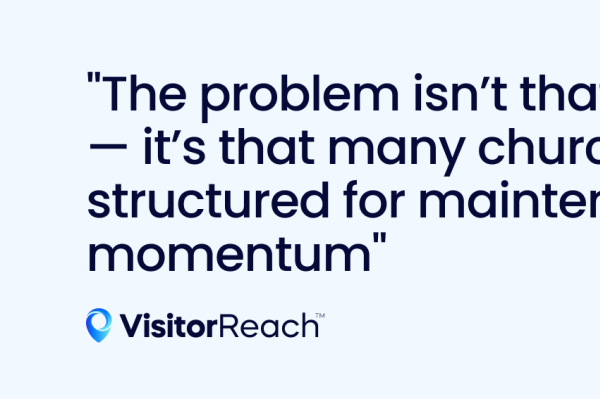Vocational Ministry: How to Use Every Gift to Glorify God

When we hear the word “vocational ministry,” many of us automatically think of a pastor, missionary, or Christian educator. However, as followers of Christ, we are called to be ministers in whatever our vocation, from nursing and teaching to carpentry and business.
Most Americans spend a great deal of time in the workplace. In fact, the average person spends an average of 7.6 hours on the job — 90,000 hours at work over a lifetime. While certain individuals are called to a career in ministry, the vast majority of Christians are employed in “non-church” or “secular” work — and it’s just as possible to honor God, minister to others, and reflect the goodness of Christ in such environments.
Paul makes it clear that we are all called to be ministers in whatever we do. 2 Corinthians 5:17–19 reads: “God has given us the task of reconciling people to him.” Furthermore, as Christians we are called through the Great Commission to “…go and make disciples of all nations…”, transmitting the love of Christ to those around us.
The Bible also talks about the priesthood of all believers: "You also, as living stones, are being built up a spiritual house, a holy priesthood, to offer up spiritual sacrifices acceptable to God through Jesus Christ … But you are a chosen generation, a royal priesthood, a holy nation, His own special people, that you may proclaim the praises of Him who called you out of darkness into His marvelous light" (1 Peter 2:5-9).
God wants to use our work — whatever it may be — to further His kingdom. Whether our priesthood is in aviation, counseling, nursing, or business, God calls us to integrate our faith into our work and disciple others wherever we are.
Whatever our vocation, God wants us to carry out our calling with enthusiasm, dependent faith, and excellence. In doing so, we fulfill the mandate found in Matthew 5:16: “Let your light so shine before men, that they may see your good works, and glorify your Father which is in heaven.” This, Scripture tells us, is pleasing to God.
Here are three things to keep in mind as we take discipleship into the workplace and strive to use every gift to honor God.
1. Whatever Your Vocation, Your Goal is to Glorify God.
Scripture is clear that the purpose of work is not solely to gain financial success or earthly praise, but to glorify God and serve others (Luke 10:27). As followers of Christ, we must carry out our work with excellence, working as if unto the Lord (Colossians 3:23).
This mandate is evident throughout the Bible: 1st Corinthians 10:31 tells us, “So whether you eat or drink or whatever you do, do it all for the glory of God.” In Ephesians 1:11–12, Paul reminds us that we work for a purpose greater than ourselves: “In Him we have obtained an inheritance, having been predestined according to the purpose of Him who works all things according to the counsel of His will, so that we who were the first to hope in Christ might be to the praise of His glory.”
As followers of Christ, we believe that God created His people for work — and each and every one of us is required to be an ambassador and image-bearer of Christ. Throughout Scripture, God calls people to become united with himself in every aspect of life, both personally and professionally. It stands to reason, then, that we are called to view our jobs as ministry assignments from God.
In chapter eight of Don’t Waste Your Life, titled “Making Much of Christ from 8 to 5,” DesiringGod.org founder John Piper explains why the goal of work is to “make God look great.”
“So if you go all the way back, before the origin of sin, there are no negative connotations about secular work. According to Genesis 2:2, God himself rested from his work of creation, implying that work is a good, God-like thing. And the capstone of that divine work was man, a creature in God’s own image designed to carry on the work of ruling and shaping and designing creation. Therefore, at the heart of the meaning of work is creativity. If you are God, your work is to create out of nothing. If you are not God, but like God — that is, if you are human — your work is to take what God has made and shape it and use it to make him look great.”
When we view our work as a ministry of glorifying God and selflessly serving others, we are able to better reflect Christ in carrying out even the most mundane tasks.
2. God Has Given Us all Unique Gifts
We don't need to be employed by a church, faith-based group, or mission organization to do the work of the ministry. In fact, many Christians are called to “secular” vocations such as business, construction, nursing, homemaking, or engineering.
Jon Bloom, author and co-founder of DesiringGod.org, writes that the “New Testament God draws no sacred/secular vocational distinctions within the church.”
“The New Covenant vocational distinction is between the Son of God and the rest of us (Hebrews 2:17),” he writes. “For now ‘there is one mediator between God and men, the man Christ Jesus’ (1 Timothy 2:5). We have one high priest, ‘holy, innocent, unstained, separated from sinners, and exalted above the heavens’ who offered himself as the once-for-all sacrifice for sin (Hebrews 7:26–27; 10:12). And being made holy by our great High Priest, Jesus, all Christians are peers, fellow workers in the Great Commission.”
Every person’s work matters to God. Whether we are pastors or nurses, carpenters or bankers, soldiers or engineers, our work has deep significance. Whatever our vocation, our calling as children of God is to be salt and light to a watching, sin-damaged world (Matthew 5:13-16).
3. Work as an Opportunity to Witness
Even the most devout of Christians can sometimes fall prey to the inevitable frustrations of the workplace. Unfortunately, as a result, many of us who call ourselves Christians fail to live up to that name at work.
How do we engage with culture while faithfully embracing the gospel?
In the New Testament, the Apostle Paul makes an important connection between the name of Jesus and our daily interactions with others. “Whatever you do, in word or deed, do everything in the name of the Lord Jesus, giving thanks to God the Father through Him.” (Col. 3:17).
Whatever our vocation, we are to “Rejoice always, pray without ceasing, give thanks in all circumstances; for this is the will of God in Christ Jesus for you.” (1 Thess. 5:16–18).
Essentially, Paul is urging us to exemplify love for our neighbor in how we interact with our colleagues, speaking words of grace to those around us. “Let no corrupting talk come out of your mouths, but only such as is good for building up, as fits the occasion, that it may give grace to those who hear.” (Ephesians 4:29).
In this way, we are able to be an effective witness for Christ and exhibit his love, kindness, and patience to those around us — whatever our vocation.
In their bookYour Work Matters to God, Douglas Sherman and William Hendricks write: "The key to bringing the culture and the church back together, to renewing the workplace and reforming the church—may well be a movement of people who are known for their hard work, for the excellence of their effort, for their honesty and unswerving integrity, for their concern for the rights and welfare of people, for the quality of the goods and services produced, for their leadership among coworkers—in short, for their Christ-likeness on and off the job. What could an army of such workers accomplish?"
As we take discipleship into the workplace and seek to use every gift to honor God, it’s important to remember that the end goal is not merely a paycheck, but rather about storing up treasure in heaven.
As Jesus says, “Do not lay up for yourselves treasures on earth, where moth and rust destroy and where thieves break in and steal, but lay up for yourselves treasures in heaven, where neither moth nor rust destroys and where thieves do not break in and steal. For where your treasure is, there your heart will be also.” (Matthew 6:19–21)
>>>Request for Liberty University Online degree info now.




